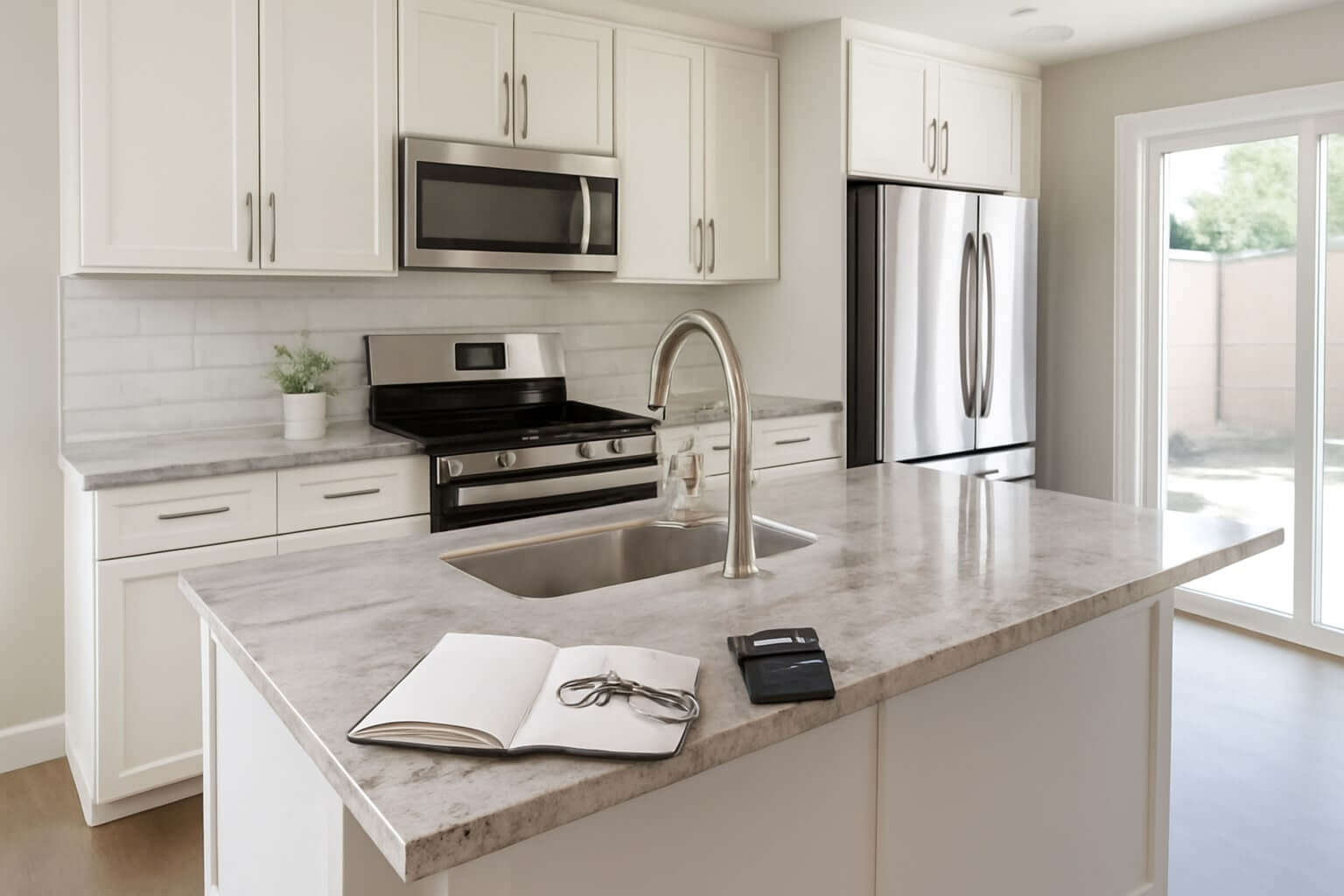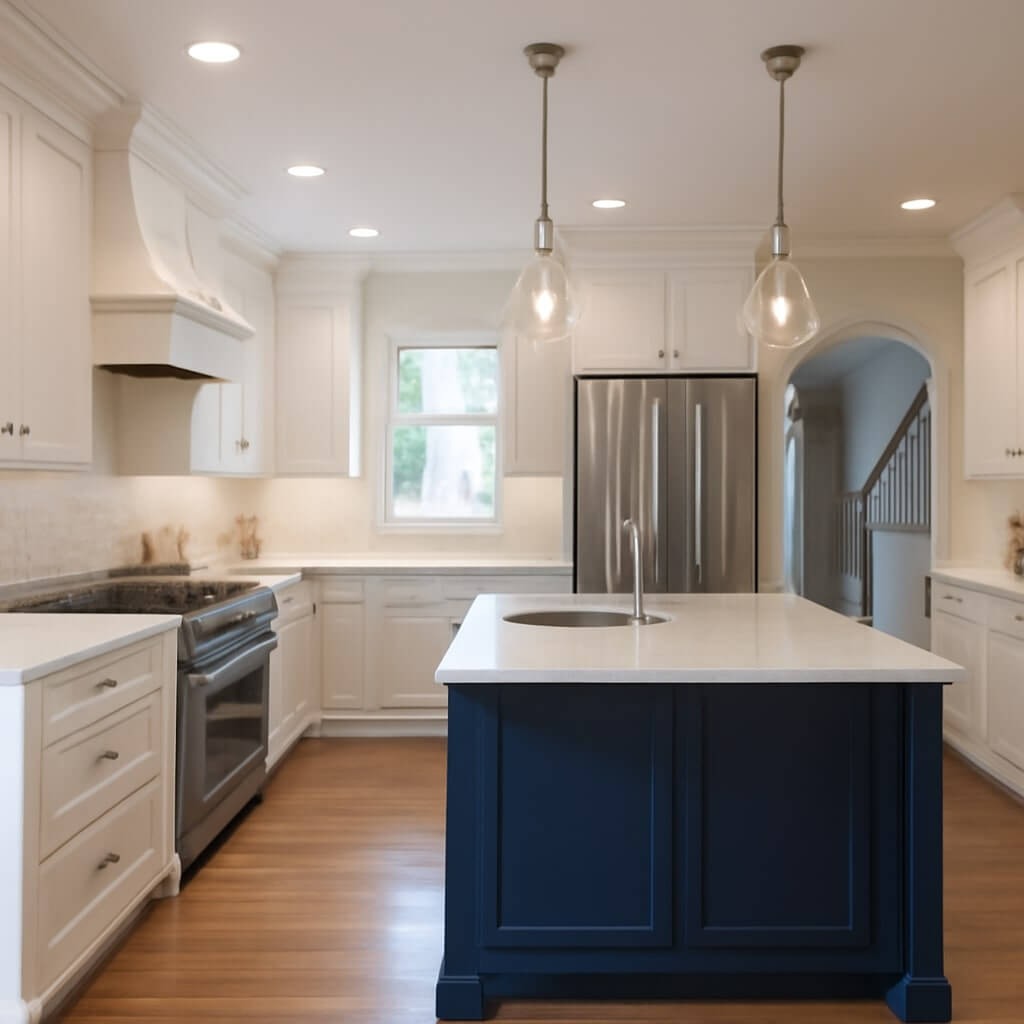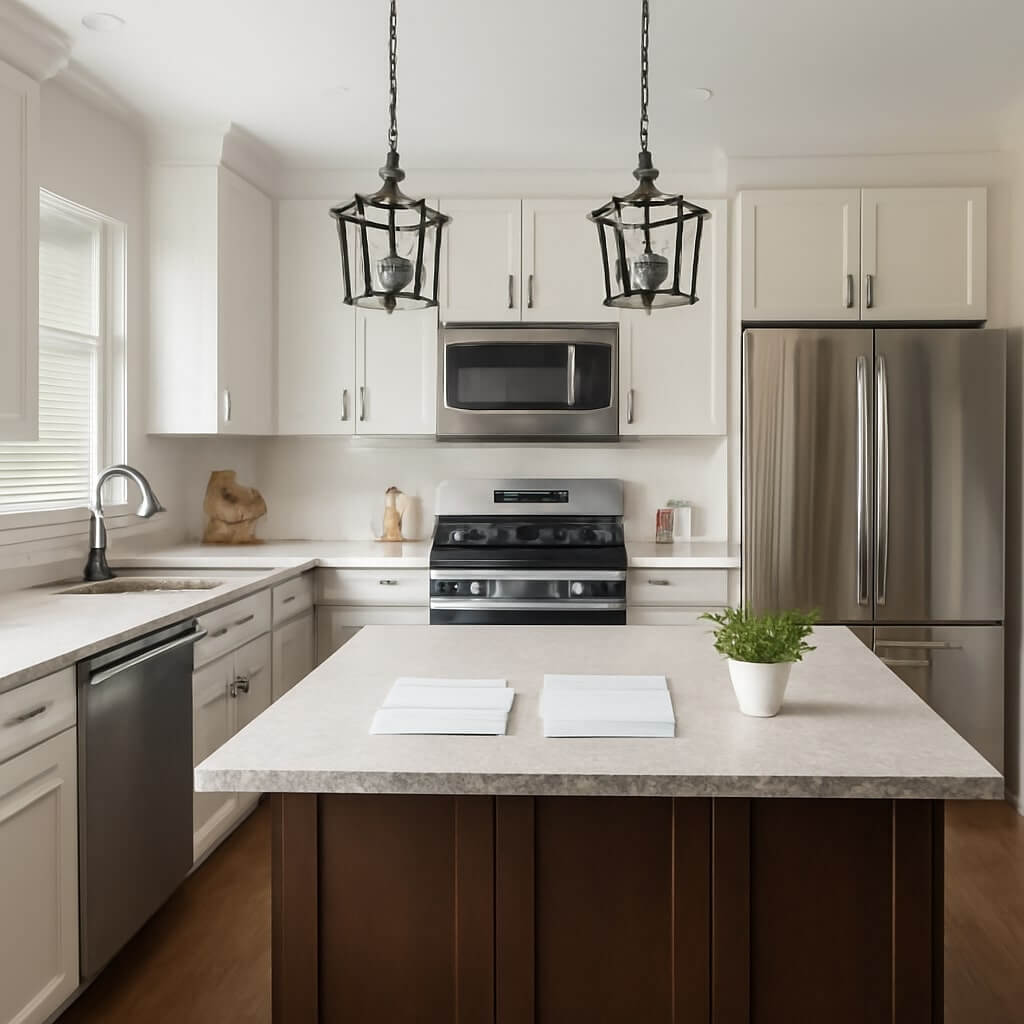When considering kitchen remodeling, it’s essential to understand how it impacts your taxes. Generally, aesthetic upgrades won’t qualify for deductions, but there are exceptions. For instance, if renovations are necessary for medical reasons or if you’re renting out your property, you might find some tax benefits. However, the specifics can be complex and require careful documentation. What other factors could influence your potential deductions?
Key Takeaways
- Kitchen remodeling typically does not qualify for tax deductions unless related to medical needs or accessibility improvements.
- Aesthetic upgrades, like new cabinets or countertops, generally do not provide tax benefits.
- Renovations for rental properties may have different tax implications, but personal home improvements are less likely to qualify.
- Keeping accurate documentation of all expenses is essential for any potential tax deductions related to remodeling.
- Consulting a tax professional can provide personalized advice on possible deductions and compliance with IRS regulations.
Understanding Tax Deductions for Home Improvements
When considering home improvements, you might wonder which projects qualify for tax deductions. Generally, tax benefits apply primarily to home modifications that enhance accessibility or energy efficiency.
These improvements can lower your remodeling costs while offering potential deductions. However, typical aesthetic upgrades, such as kitchen remodels, usually don’t qualify unless they meet specific criteria.
It’s crucial to document your expenses meticulously, as this can influence your eligibility for deductions. Always consult a tax professional for personalized advice, ensuring you maximize your tax benefits while staying compliant with IRS regulations regarding home improvement deductions.
When Kitchen Remodeling Is Considered Tax Deductible
While most kitchen remodeling projects focus on aesthetics, certain situations can make them tax deductible. If you’re making kitchen updates for medical reasons—like installing accessibility features—these expenses may qualify for deductions.
Additionally, if you’re improving your home for rental purposes, the costs associated with those renovations can also carry tax implications.
However, keep in mind that purely aesthetic improvements typically don’t qualify. It’s crucial to document your expenses and consult with a tax professional to guarantee compliance with IRS guidelines.
Understanding these nuances can help you maximize potential tax benefits from your kitchen remodeling efforts.
Home Office Deductions and Kitchen Renovations
If you use part of your kitchen as a home office, renovations may impact your tax deductions.
Understanding the eligibility requirements for home office deductions is essential to maximizing any potential benefits.
You’ll need to evaluate how much of your kitchen space is dedicated to work to determine what qualifies.
Home Office Space Impact
Although kitchen renovations can greatly enhance your home’s value and functionality, their impact on home office deductions requires careful consideration. When you remodel your kitchen, you need to assess how it affects your home office space, as tax implications can arise.
| Factor | Impact on Home Office Deductions |
|---|---|
| Renovation Costs | May affect overall deduction |
| Square Footage | Affects eligible deduction area |
| Shared Expenses | Must be allocated accordingly |
| Improvement Value | Increases home value, may alter deductions |
| Usage Percentage | Determines deduction eligibility |
Understanding these factors is essential for maximizing your deductions.
Deduction Eligibility Requirements
Understanding the deduction eligibility requirements for home office deductions, especially in the context of kitchen renovations, is vital for homeowners.
You must guarantee that your kitchen functions as a dedicated workspace to qualify for certain deduction types. If you’re using a portion of your kitchen exclusively for business, you can deduct renovation costs attributed to that space.
It’s important to document expenses accurately and maintain records of how those renovations enhance your home office.
Energy-Efficient Upgrades and Tax Incentives
When you upgrade your kitchen with energy-efficient features, you might qualify for valuable tax credits.
Understanding which improvements are eligible can help you maximize your savings when filing for deductions.
Let’s explore the specifics of these incentives and how to take advantage of them.
Tax Credits Overview
If you’re considering kitchen remodeling, it’s important to explore potential tax credits associated with energy-efficient upgrades.
Understanding the tax incentives overview can enhance your kitchen renovations benefits. Here are four key tax credits you might qualify for:
- Energy-Efficient Appliances: Get credits for upgrading to ENERGY STAR-rated appliances.
- Insulation Improvements: Increase energy efficiency through qualified insulation materials.
- Windows and Doors: Replace outdated windows and doors with energy-efficient options.
- Solar Energy Systems: Install solar panels for significant tax incentives.
Eligible Energy Improvements
As you begin your kitchen remodeling journey, consider that eligible energy improvements can greatly enhance both your home’s efficiency and your tax savings.
Upgrading to energy efficient appliances, such as refrigerators and dishwashers, not only reduces utility costs but may also qualify you for tax credit eligibility. The federal government often provides incentives for homeowners who invest in these eco-friendly options.
It’s essential to keep documentation of your purchases and confirm that your upgrades meet the specific energy standards outlined by the IRS.
Filing for Deductions
Maneuvering through the process of filing for deductions related to energy-efficient upgrades can seem intimidating, especially with the variety of tax incentives available.
To maximize your benefits, consider these filing methods and deduction strategies:
- Document Expenses: Keep receipts and records of all energy-efficient purchases.
- Use IRS Form 5695: This form is specifically for residential energy credits.
- Consult a Tax Professional: They can guide you through complex regulations.
- Explore State Incentives: Some states offer additional credits or rebates for energy-efficient upgrades.
Capital Gains Tax and Home Improvements
When you make significant home improvements, such as a kitchen remodel, it’s important to understand how these upgrades can impact your capital gains tax when you sell your home.
Capital gains tax is assessed on the profit you make from selling your property. By investing in home upgrades, you can increase your home’s basis, potentially lowering your taxable gain. This means that the more you spend on improvements, the less profit may be subject to capital gains tax.
However, not all upgrades offer equal returns, so it’s essential to take into account which renovations will provide the best financial benefits in the long run.
Documenting Your Expenses for Tax Purposes
To maximize the potential tax benefits of your kitchen remodeling project, it’s vital to meticulously document all expenses related to the renovation.
Effective expense tracking and receipt organization are important for ensuring you capture every deductible cost.
Meticulous expense tracking and organized receipts are crucial for claiming all possible tax deductions.
Consider the following items:
- Labor Costs: Keep records of payments to contractors and subcontractors.
- Materials: Save receipts for all materials purchased, from cabinets to countertops.
- Permits: Document any permits or fees associated with the renovation.
- Design Services: Include invoices for professional design consultations.
Consulting With a Tax Professional
While maneuvering through the complexities of tax deductions for your kitchen remodeling project, consulting with a tax professional can provide invaluable guidance.
These experts offer tailored tax advice that aligns with your unique financial situation. They can clarify which expenses qualify for deductions and help you navigate potential pitfalls.
By integrating their insights into your financial planning, you’ll maximize your tax benefits. Additionally, a tax professional can assist you in documenting your expenses accurately, ensuring you’re prepared in case of an audit.
Ultimately, their expertise can help you make informed decisions about your kitchen remodel and its tax implications.
Planning Your Kitchen Remodel With Taxes in Mind
As you commence planning your kitchen remodel, it’s essential to reflect on the tax implications of your choices. Effective budget planning and a clear renovation timeline can help maximize potential deductions.
Consider these four key aspects:
- Identify eligible improvements: Focus on upgrades that enhance value, like energy-efficient appliances.
- Document expenses thoroughly: Keep receipts and records for all costs.
- Consult a tax professional: Gain insights on specific deductions available in your area.
- Evaluate your tax situation: Understand how your remodel fits into your overall financial picture.
Being proactive can lead to significant tax benefits down the line.
Conclusion
In summary, kitchen remodeling typically isn’t tax-deductible unless it meets specific criteria, like being medically necessary or related to a rental property. Energy-efficient upgrades may offer tax incentives, while documenting your expenses is essential for potential deductions. Consulting with a tax professional can clarify your options and help you navigate any complexities. By understanding the nuances of tax implications, you can better plan your kitchen remodel and potentially maximize financial benefits.




